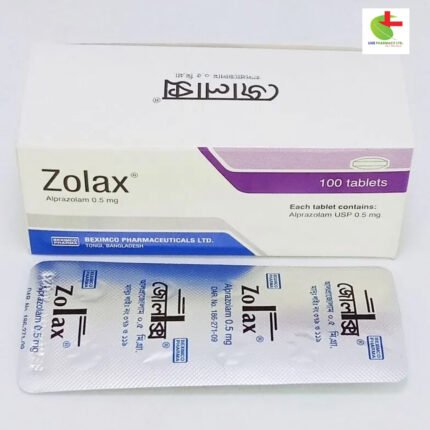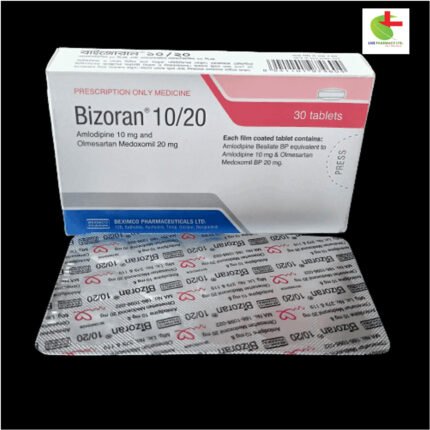Amdocal 2.5
30.00৳ Strip
- Discover Amdocal, a trusted medication for treating essential hypertension and angina pectoris.
- As a calcium-channel blocker, Amdocal effectively lowers blood pressure and enhances blood flow.
- It can be used alone or in combination with other antihypertensive or antianginal medications.
- Amdocal is well-tolerated with minimal side effects, such as occasional dizziness and flushing.
- Suitable for ongoing management of cardiovascular conditions with a simple once-daily dosing regimen.
 Brand
Brand
|
Beximco Pharmaceuticals Ltd |
|---|---|
 Generics
Generics
|
Amlodipine Besilate |
 Type
Type
|
Tablet |
Indications
Amdocal is prescribed for the following conditions:
- Essential hypertension: Amdocal is effective as a standalone treatment for hypertension and can be used in combination with other antihypertensive medications.
- Angina pectoris: It is indicated for chronic stable angina pectoris, either as monotherapy or in combination with other antianginal agents.
- Vasospastic angina: Amdocal is used for confirmed or suspected vasospastic angina, either alone or with other antianginal drugs.
Pharmacology
Amlodipine, a dihydropyridine calcium-channel blocker, has a prolonged action period and is primarily used for hypertension and angina pectoris treatment. It acts on myocardial cells, the specialized conducting system of the heart, and vascular smooth muscle cells, resulting in vasodilation. This leads to reduced peripheral resistance, blood pressure, and afterload, increased coronary blood flow, and reflex increase in coronary heart rate, thereby enhancing myocardial oxygen supply and cardiac output.
Dosage & Administration
- Hypertension: The usual starting dose is 5 mg once daily, with a maximum of 10 mg daily. Elderly patients with hepatic insufficiency may start at 2.5 mg daily, and this lower dose is also used when combining Amlodipine with other antihypertensive therapies.
- Angina: For chronic stable or vasospastic angina, the typical dose ranges from 5 mg to 10 mg daily, with lower doses recommended for elderly patients and those with hepatic insufficiency. Most patients require 10 mg for optimal management. Amdocal can be taken with or without food.
Interactions
Amdocal may interact with certain medications. It is advised to avoid combining it with p-blockers in patients with significantly impaired cardiac left ventricular function. Interactions with drugs like digoxin, cimetidine, and warfarin have been studied and are generally well-tolerated.
Contraindications
Amdocal should not be used in individuals with hypersensitivity to dihydropyridine derivatives or during pregnancy.
Side Effects
Common side effects include dizziness, flushing, headache, hypotension, and peripheral edema. Gastrointestinal disturbances, increased urination frequency, lethargy, eye pain, and mental depression may also occur. Caution is advised for potential paradoxical increases in ischemic chest pain at the start of treatment.
Pregnancy & Lactation
Amdocal is categorized as Pregnancy Category C. Its use during pregnancy should be carefully weighed against potential risks to the fetus. It is unknown if Amlodipine is excreted in human milk; therefore, nursing should be discontinued while using Amdocal.
Precautions & Warnings
Special caution is necessary when using Amdocal in patients with hepatic impairment and during breastfeeding. Pediatric dosing and specific recommendations for elderly patients with renal impairment or severe hepatic impairment are provided.
Overdose Effects
Symptoms of overdose may include excessive peripheral vasodilation and reflex tachycardia, leading to severe systemic hypotension and shock. Management involves cardiovascular support, including monitoring of cardiac and respiratory functions, fluid volume correction, and potentially the use of vasoconstrictors or calcium gluconate.
Therapeutic Class
Amdocal belongs to the class of calcium-channel blockers.
Storage Conditions
Store Amdocal in a cool, dry place protected from light, and keep it out of reach of children.













Reviews
There are no reviews yet.